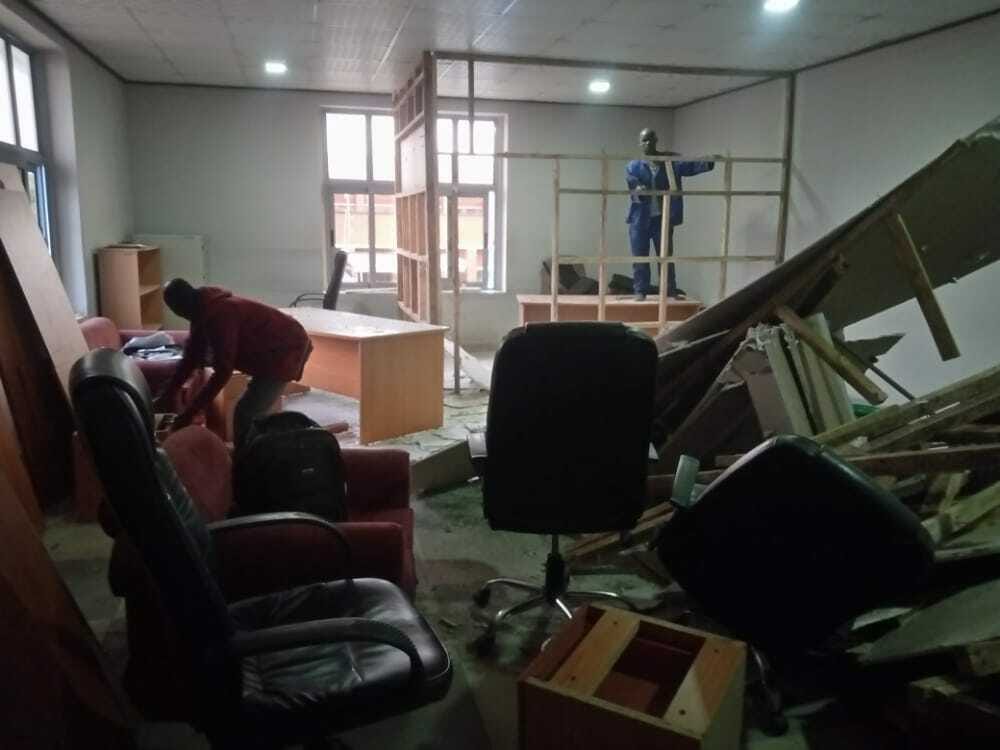
This is a letter to His Excellency the President of the Republic of Malawi Dr. Lazarus McCarthy Chakwera on the Concern over the revocation of broadcasting licences in Malawi.
1 September 2022
His ExcellencyThe President of the Republic of MalawiDr. Lazarus McCarthy ChakweraOffice of the President and CabinetCapital Hill CirclePrivate Bag 301Capital City, Lilongwe 3Malawi.
Your Excellency,
Re – Concern over the revocation of broadcasting licences in Malawi
Your Excellency, The Media Institute of Southern Africa (MISA) proffers its greetings and compliments to you.
MISA is a regional body advocating for the improvement and enjoyment of media freedom, freedom of expression, access to information and the protection of privacy rights.
Your Excellency, we write to you to express our concern at the shrinking broadcasting space in Malawi. Over the past two months the Malawi Communications Regulatory Authority (MACRA), presided over the revocation of a number of broadcasting licences.
We understand that at least 23 radio broadcasting stations and six television stations may have their licences revoked by the end of this year.
Your Excellency, in the recent past, we have raised our concern over the high broadcasting content service fees and warned that this could lead to defaults by broadcasting stations. We once again implore your office to relook into these costs with a view to revising them downwards.
We do understand that licence fees are part of the regulations, but instead of shutting down the stations, there is need to engage the broadcasters and come up with a win-win situation. The revocation of licences is too drastic and has a chilling effect on freedom of expression.
As we have highlighted, fees should not be prohibitively high to the extent whereby they deter applicants from applying for licenses or result in default payment rates.
This comes at a time when the world is just emerging from the COVID-19 pandemic, which drastically affected revenue for advertisers and the media.
It is therefore our humble submission that there is need for a measured approach that allows broadcasters time and space to get back on their feet and recoup expenses, before such drastic action – revocation of licences – is taken.
Your Excellency, radio and television stations are critical in enabling the right to access to information.
Shutting down these broadcasters risks denting the progress that Malawi has made since re-introduction of multiparty democracy in your country and the operationalisation of the Access to Information law in 2020.
We would also like to bring to your attention the African Commission on Human and Peoples’ Rights’ Declaration on Freedom of Expression and Access to Information, which notes the particular importance of the broadcast media in Africa, given its capacity to reach a wide audience due to the comparatively low cost (emphasis our own), of receiving transmissions and its ability to overcome barriers of illiteracy.
Your Excellency, we would also like to point out that Malawi has been declining on the World Press Freedom Index and the closure of the broadcasting stations will only further worsen your country’s standing when it comes to freedom of expression and of the media.
We, thus, reiterate the call for dialogue and engagement on the broadcasting licences issue before any drastic action is taken that could further sully Malawi’s image on the international stage.
Your Excellency, we are, therefore, humbly requesting your esteemed office to intervene in this matter and allow the affected stations to continue operating until a lasting solution to this impasse is found.
Yours Sincerely,
Golden Maunganidze
Chairperson
MISA Regional Governing Council
MISA is a regional non-governmental organisation with members in 8 of the Southern Africa Development Community (SADC) countries. Officially launched in September 1992, MISA focuses primarily on the need to promote free, independent, and pluralistic media, as envisaged in the 1991 Windhoek Declaration.
Enquiries:MISA Regional SecretariatHarare, ZimbabweTel/Fax: +264 242 776 165/ 746 838Email: [email protected]